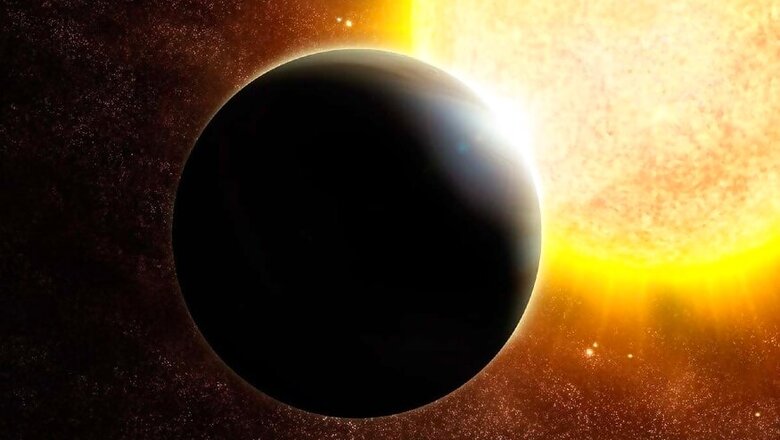
views
The universe is practically infinite, and given its sheer endless corners, scientists, astronomers and enthusiasts have forever speculated that it is likely to have life hidden away in some distant exoplanet in a galaxy far, far away. To hunt for life outside of Earth, our space telescopes have been studying atmospheres of potentially habitable exoplanets identified so far for identifying the gaseous signatures of these planets. The key to gauging the potential of life on any of these planets is to spot oxygen and nitrogen, which are key constituents of the Earth's atmosphere. But, what if life forms outside of Earth have a different chemical composition, and as such, can survive in a different atmosphere?
It is this assumption that a new, high profile study, undertaken by a group of scientists and published in the Nature Astronomy journal, challenges. Headed by Sara Seager, an American-Canadian astronomer who is famous for her work with exoplanets and identifying atmospheres, the study suggests that the hunt for extraterrestrial life should take into account that fundamental life forms, if present in other planets, can be entirely different from any life form seen on Earth. As a result, Seager and her team have stated that observations and calculations made by our space telescopes should search for atmospheres rich in hydrogen as well.
There are key points to the observation here. For one, multiple life forms have been known to exist on Earth itself, which can sustain and even grow in atmospheres without any trace of oxygen. These organisms can be sustained in atmospheres of hydrogen, which have been observed in extreme, deep sea conditions, as well as in controlled laboratory environments. However, the study further suggests that spotting an exoplanet with an atmosphere of hydrogen has multiple aspects to understand.
First, hydrogen is the lightest known element, and as such, would have a far more expansive atmosphere, hence making it more traceable via space telescopes. By virtue of it being so light, the planet will need to exert more gravitational force to hold on to its atmosphere, and as a result, have a mass that is between two to 10 times greater than that of Earth. As a result, this narrows down the search to exoplanets that we so far know as 'super Earths', or Earth-like rocky planets that may be potential candidates to sustain life.
Spotting a planet with such an atmosphere means that it may be sustained in its present form continuously by virtue of a chemical reaction, the direct explanation of which is the presence of a life form. By virtue of having such a consistent atmosphere, they would be easily noticeable in our space telescopes as well. The much delayed James Webb Space Telescope, which is soon to be launched, is expected to be a key instrument in further identifying planets that can potentially support life.
With a theory that has the prospect of changing mankind's entire understanding of extraterrestrial life, it now remains to be seen how this impacts our search for life outside Earth — a quest that has been the ultimate goal of the greatest space missions in mankind's history.




















Comments
0 comment